What to expect from WWDC 2024's week of updates
Later today, Apple Intelligence is coming in iOS 18, macOS 15 and more. Here's what to expect at the 1PM ET WWDC 2024 keynote!
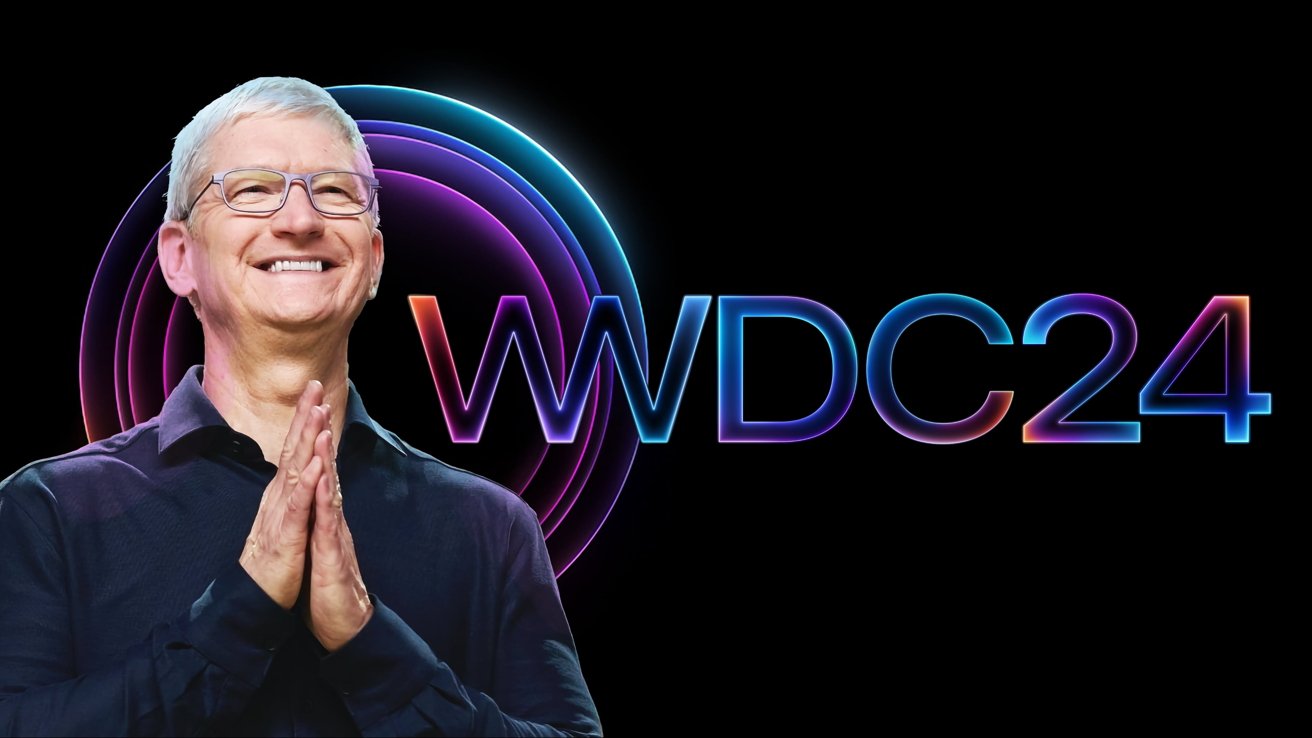
Apple CEO Tim Cook will introduce the WWDC 2024 keynote.
The Apple Worldwide Developer Conference is taking place from June 10. The week-long celebration will provide developers and observers a good look at the changes Apple will be introducing to its software in the fall.
With the WWDC keynote just a matter of days away, this is what has been teased and raised by rumors and forecasts before the day itself.
When is WWDC 2024?
The event itself starts from June 10, with the main news emerging on that day.
Apple has already confirmed the keynote will take place at 10 a.m. PDT on June 10, promising "groundbreaking updates" for its platforms. The Platforms State of the Union will happen at 1 p.m. PDT the same day, offering a deeper dive into the changes of iOS, iPadOS, macOS, tvOS, visionOS, and watchOS.
Developers will also benefit from taking part in online labs throughout the week, live forums, and over 100 technical sessions.
What to expect at WWDC 2024 -- iOS 18, iPadOS 18, macOS 15, tvOS 18, watchOS 11, visionOS 2
WWDC is chiefly about software, with operating systems being the main attraction. Following stories from earlier in the year Apple's next batch of operating systems will certainly be the big draw for the event.
Following Apple's usual naming conventions, the operating systems should be numbered iOS 18, iPadOS 18, tvOS 18, and watchOS 11. It's certain thatmacOS will be version 15 this time around, but Apple's name for it is still a mystery.
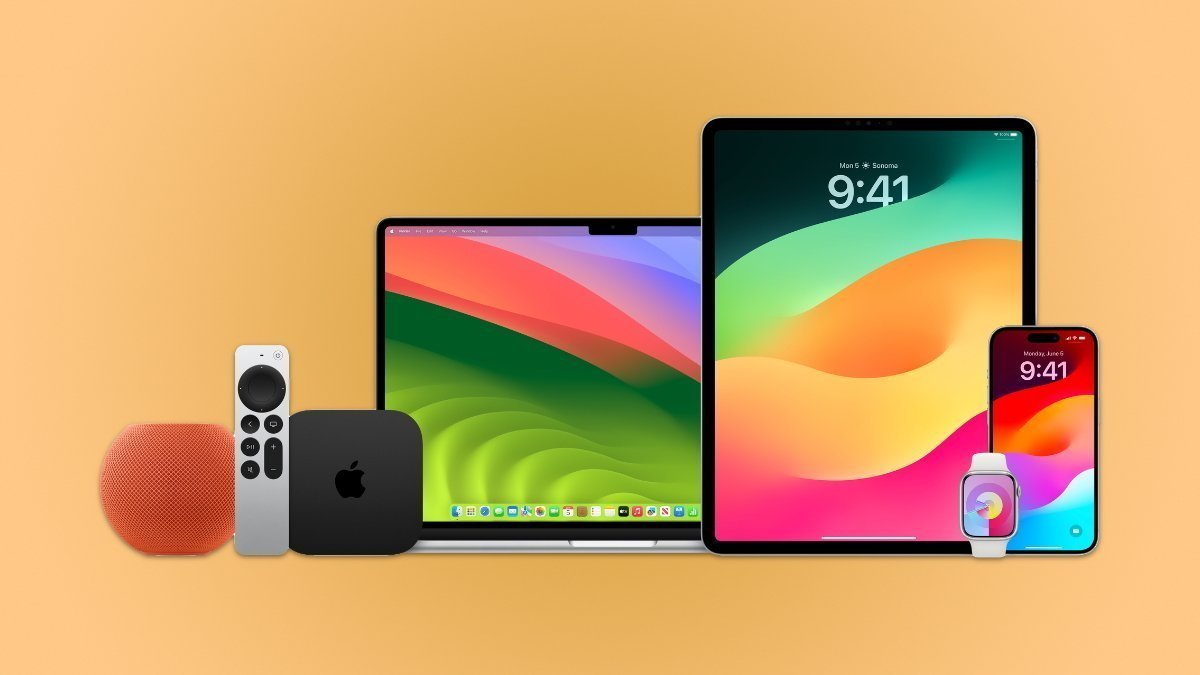
WWDC 2024's announcements should cover all of Apple's device operating systems.
There is one more operating system that will feature: visionOS.
The Apple Vision Pro operating system is still at version 1, and has undergone numerous changes in its relatively short lifespan so far. Apple will certainly address visionOS during the event, likely with a shift to version 2.
The new visionOS will include quite a few accessibility changes, such as system-wide Live Captions.
What to expect at WWDC 2024 -- Apple AI, accessibility, and feature changes
Early rumors from October 2023 put forward the idea that the release of iOS 18 will be more focused on artificial intelligence than Apple initially wanted. This has apparently included the creation of an internal chatbot titled "Apple GPT" and trials of generative AI for internal customer care tools.
On that latter part, it seems Apple is getting closer to actually involving ChatGPT and OpenAI in its plans.
Apple has since practically confirmed in hints that AI will be a big topic.
In iOS 18, there is the belief that Apple will be incorporating AI into its various services, such as helping users write in Pages or create slides in Keynote.
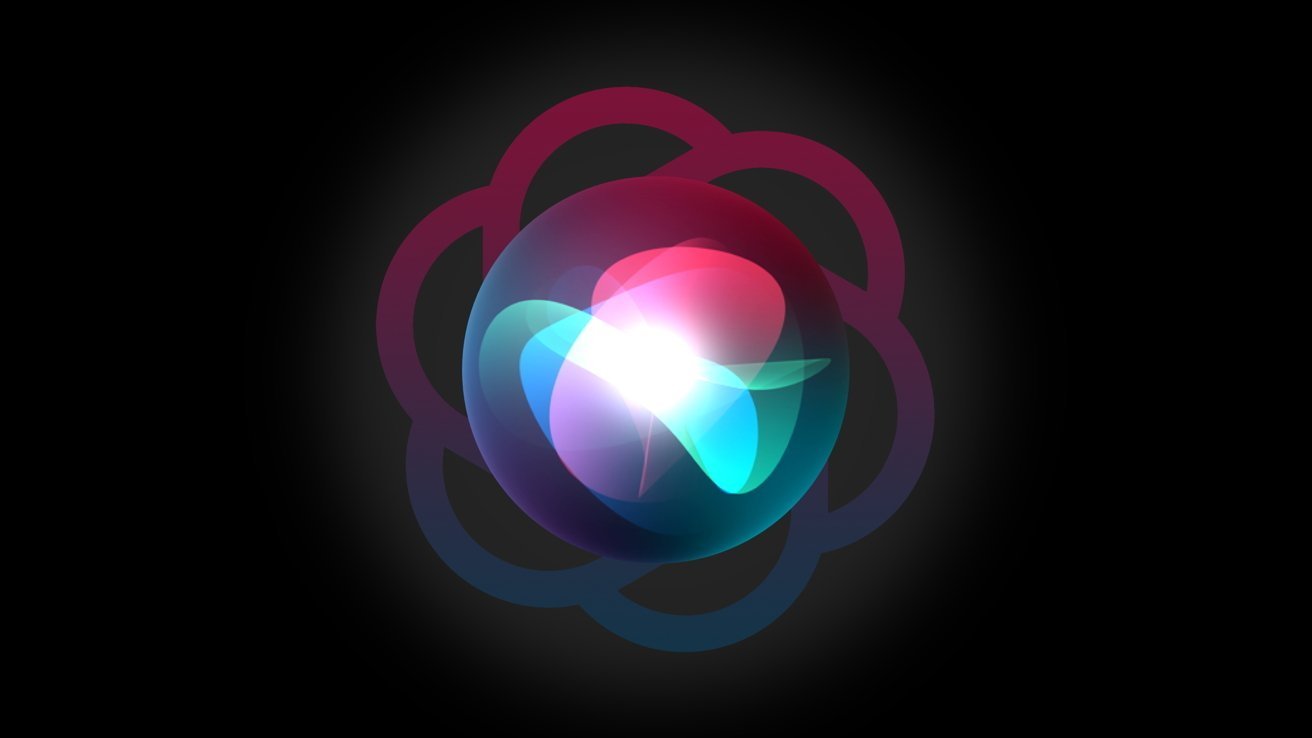
With OpenAI potentially onboard, Siri could be supercharged.
Siri will be boosted by this work, including improvements in how Siri fields questions and how Messages auto-completes sentences. It's highly likely that Siri will also use the smarts of services like ChatGPT.
Siri may also benefit from an upgrade via Apple's Ajax LLM, its own AI language model that could revolutionize how Siri functions. Consumers may ultimately like how Siri is dragged kicking and screaming into the modern era on their devices.
For developers, AI could help create software in the Xcode development environment, with functions to predict and complete blocks of code on their behalf. This could streamline coding for developers, and may even help with tedious tasks such as generating code for testing applications.
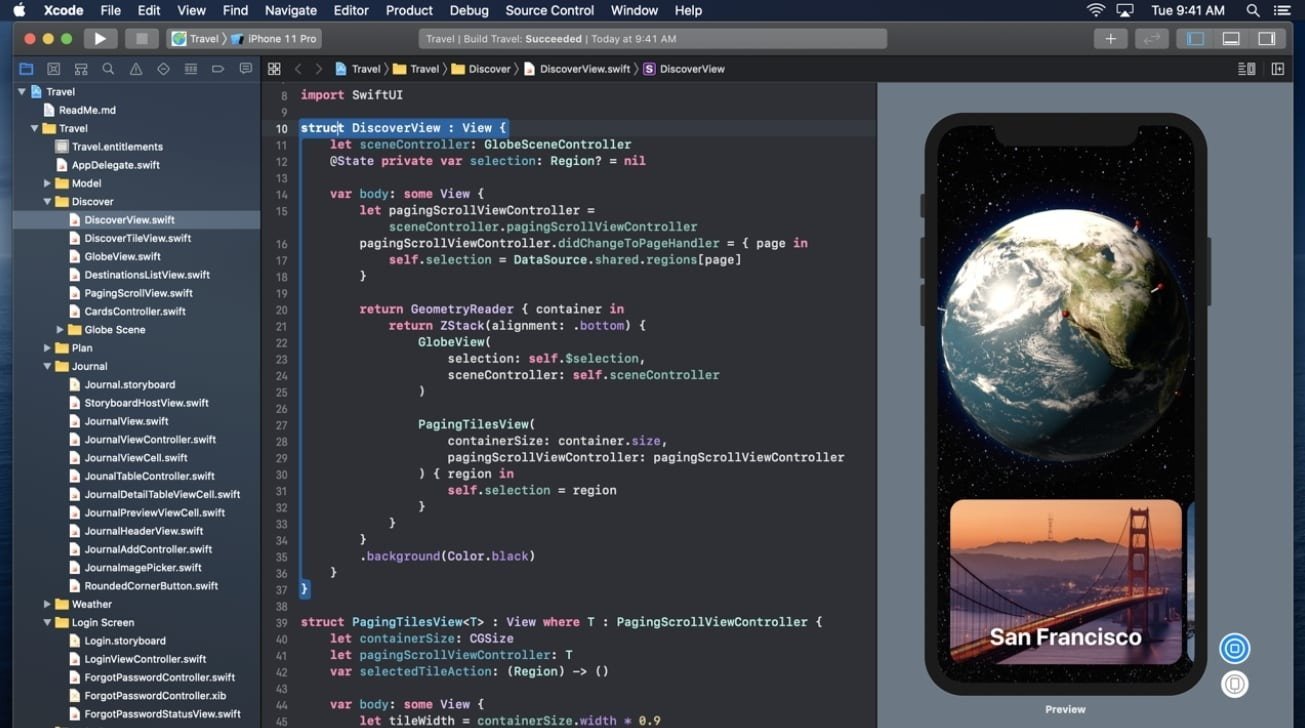
Xcode could gain AI smarts at WWDC 2024
For consumers, there's the prospect of the spread to Apple's iWork app collection being boosted. Apple researchers have even created tools for generating images, both in static and animated forms, which it could apply into its consumer-focused apps.
These enhancements, codenamed "Greymatter," this can include a notification summarization feature referred internally as "Greymatter Catch Up." Based on AppleInsider research, this could mean users will ask Siri to present an overview of recent notifications.
When it comes to generating replies, Siri will be able to use a new smart response framework that takes into account people, companies, calendar events, locations, dates, and other entities.

An example Photos interface
In applications like Photos, Apple could bring up AI image editing. There are rumors that it has created a feature called Clean Up, which will allow users to remove items from an image using generative AI.
The changes will also affect Notes, which can gain AI-powered transcription and summarization, audio recordings, and the new app Math Notes. The latter would allow the creation of graphs and the solving of equations entered into it.
There have also been murmorings of Apple providing access to AI apps in an enhanced AI App Store.
In March, a rumor about inbound accessibility features in iOS 18 and macOS 15 said elements such as Voice Shortcuts that map accessibility features to spoken phrases could be on the way. Live Speech and Personal Voice for Live Speech could gain categories, helping users find frequently used phrases faster.
The accessibility boost could also include increased font size controls across the operating systems, instead of a per-app change.
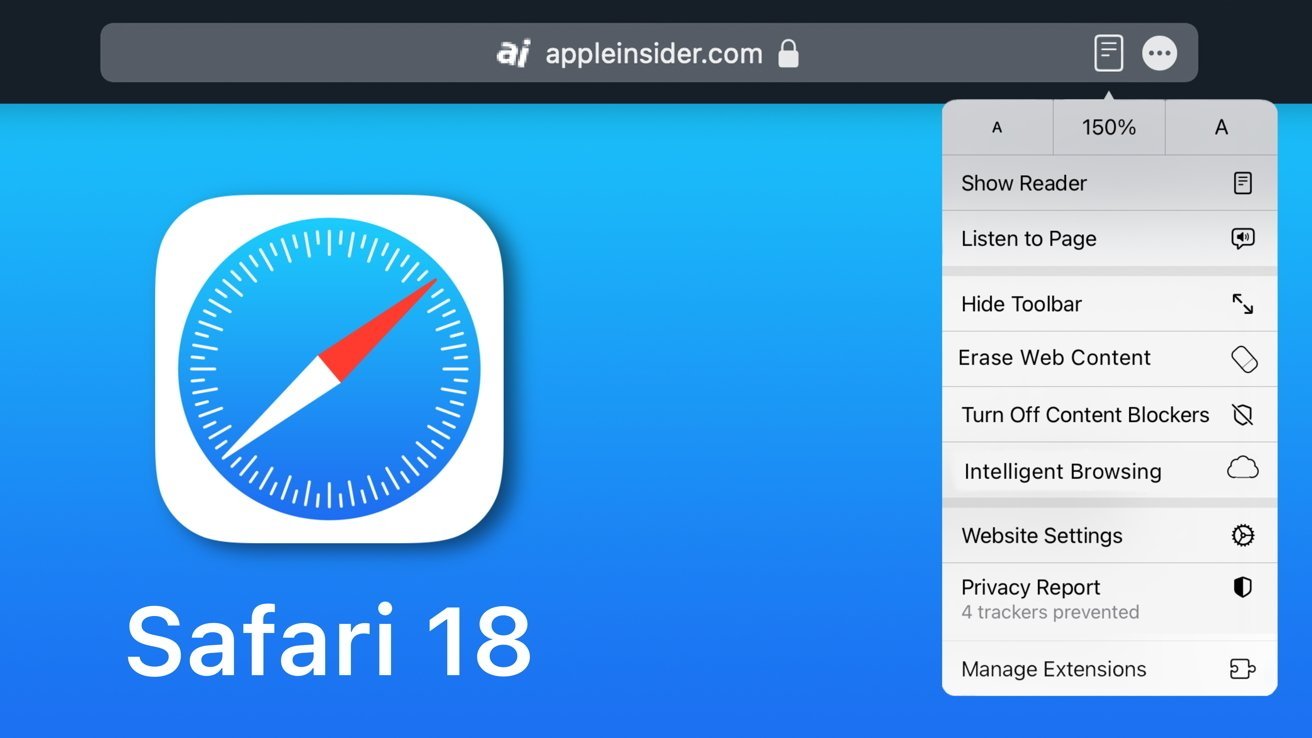
Safari could get some interface changes.
There may be some extra non-AI benefits to iMessage in iOS 18, with text effects and formatting possibly on the way. It may even work with RCS.
Safari users may discover new features, including a Browsing Assistant and Encrypted Visual Search.
More home screen customization options have also been rumored, though little is known about what that will actually be.
There have been murmurs of the ability to create new emoji in iOS 18, and to further customize app icons.
Unified events and reminders may help make users more productive, thanks to a streamlining of task management in iOS 18 and macOS 15.
Audio could also feature as an area for improvement at WWDC. For a start, the Music app could improve the existing crossfade option to a new "smart song transition" to gradually reduce the volume of a playing track as it nears the conclusion, while raising the other.
This transition would be controllable, with users able to adjust the duration of the new crossfade effect.
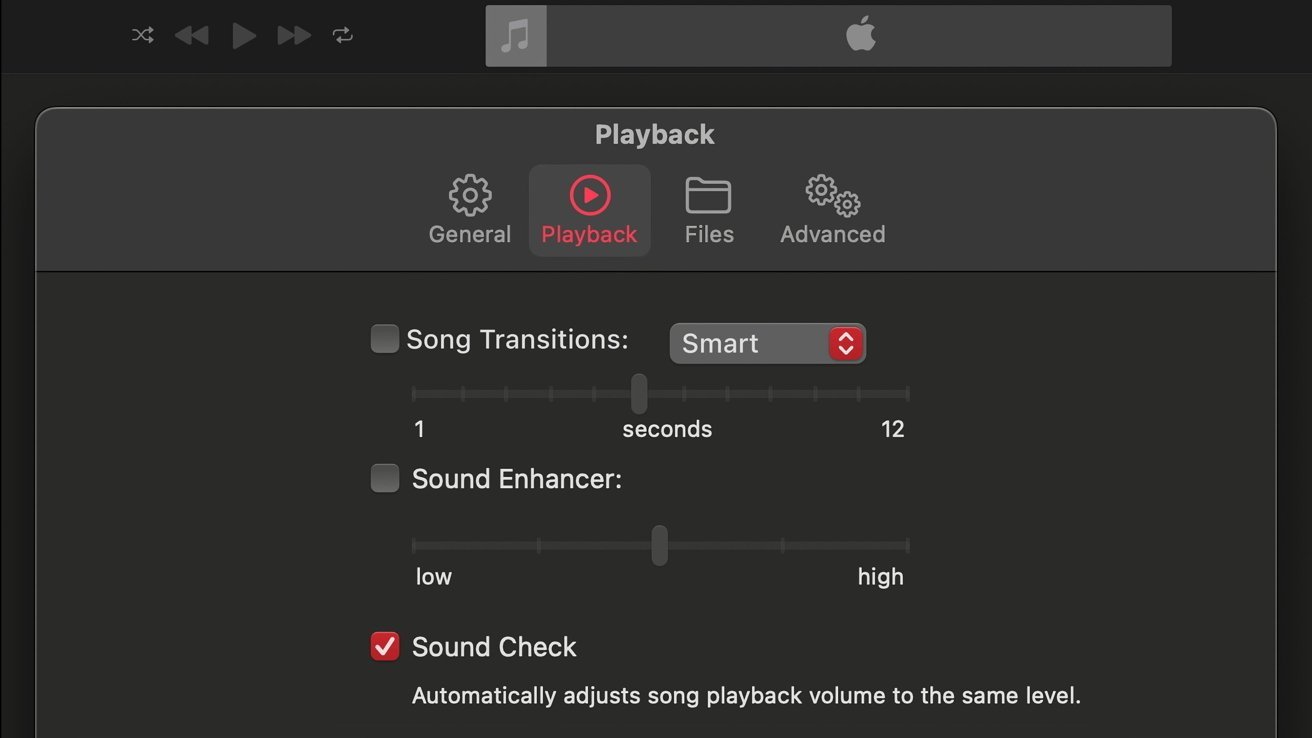
Apple Music Smart Transitions
Audio Passthrough, which will be available only on supporting hardware, has surfaced but with few details. It is seemingly linked to Spatial Audio in some way, as well as macOS Quicktime.
Other audio features on the way can include Spatial Gaming with hands-free controls, among other gaming-forward elements.
The Freeform app could get quite a few navigational changes through a "Scenes" feature. This would move users to specific areas of the board, which can then be used and edited by the user.
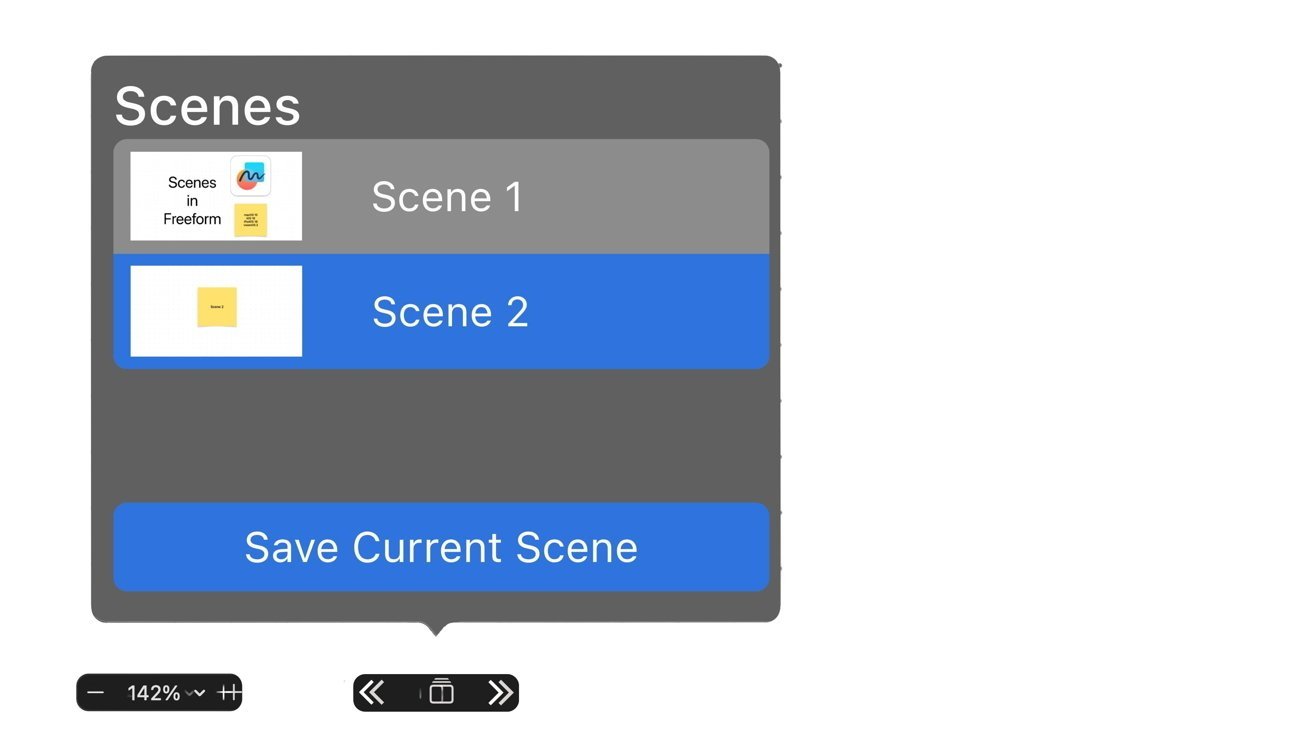
Freeform could gain Scenes for navigation.
This should make it a lot easier to manage complex projects within Freeform. Meanwhile, a Snap to Grid feature will make editing and positioning items easier than before.
Again, generative AI may also feature in the Freeform app.
There have been some rumors that iOS 18 could adopt some elements to make it look more like visionOS, but that seems to be a bit difficult to believe.
What to expect at WWDC 2024 -- Hardware
Though chiefly software-based, Apple does, on occasion, make major hardware announcements that are more aimed at developers than consumers. This sometimes includes hardware that would be of interest to developers and professional users, such as the Mac Studio and Mac Pro.
Over the last ten years:
- WWDC 2023 saw the introduction of the 15-inch MacBook Air, M2 Max and M2 Ultra Mac Studio, M2 Ultra Mac Pro, and Apple Vision Pro.
- WWDC 2022 saw an updated 13-inch MacBook Air and 31-inch MacBook Pro.
- WWDC 2020 had Apple announce its transition away from Intel chips in favor of Apple Silicon for its Mac hardware
- WWDC 2017 had Apple introduce the 10.5-inch iPad Pro and an updated 12.9-inch iPad Pro. Mac updates included a new MacBook, MacBook Pro, iMac, and iMac Pro.
Early rumors claimed an updated Mac Studio with the M3 Ultra will arrive in the middle of 2024, which would line up with an announcement at WWDC.
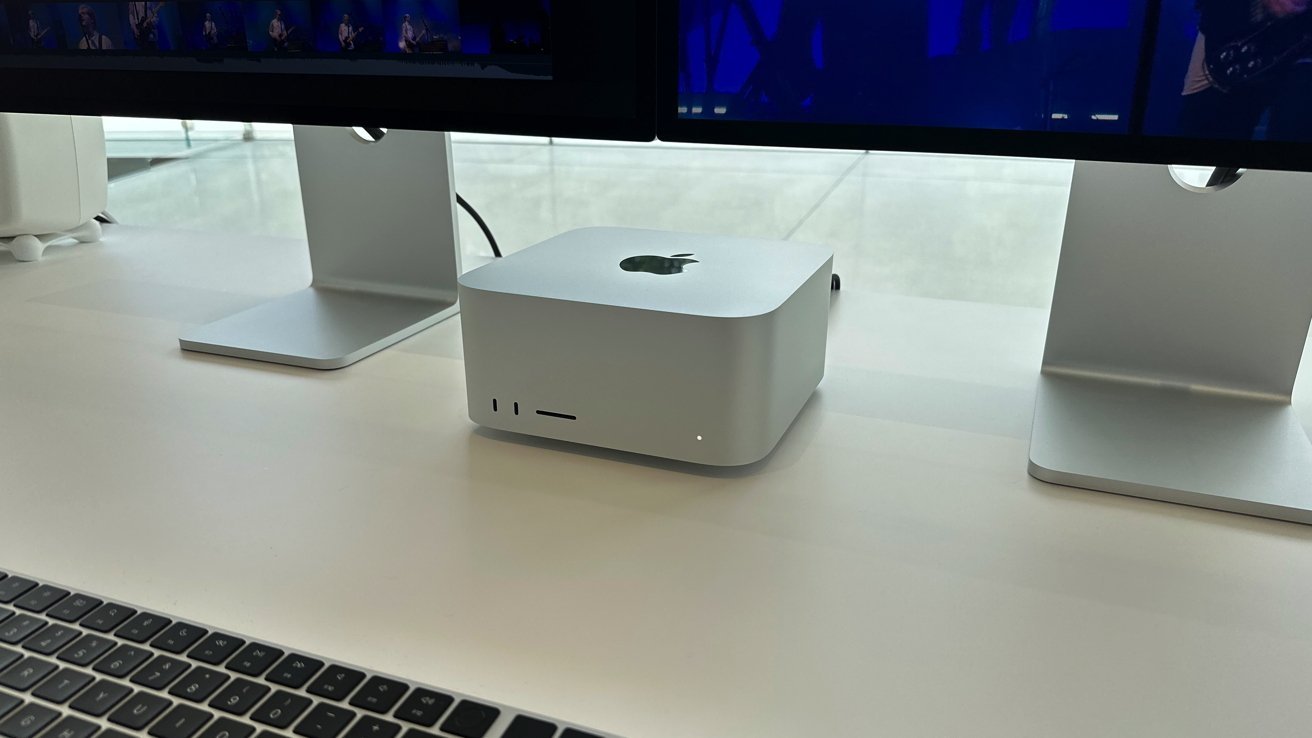
Mac Studio could gain M3 Ultra updates at WWDC
If it does get introduced, the M3 Ultra could follow the M1 and M2 pattern and effectively be two M3 Max chips attached by an interconnect. That means it will have double the individual chip components than the M3 Max chip.
Bear in mind that this is only if Apple actually does bring out an M3 Ultra. Since Apple has already launched an iPad Pro refresh with the M4 chip, that puts the prospect of an M3 Ultra update on shaky ground.
However, while there have been rumors in favor of a Mac Studio or Mac Pro refresh at WWDC, others have also said it may not happen until much later. In some cases, the Mac Pro is left out entirely.
One December report said Apple could bring out an update to both Mac Studio and Mac Pro toward the end of 2024, meaning they could miss WWDC entirely. However, January's report about the Mac Studio leaves out any mention of the Mac Pro at all.
Given Apple's update to the Mac Pro was considered a massive fumble by the company, Apple has both a reason to update the Mac Pro to win back users, and to leave it alone for a while and to focus on Mac Studio.
By mid-May, the rumors leaned in favor of a much later update, with a potential refresh waiting until 2025.
What to expect at WWDC 2024 -- one more thing?
WWDC is also a venue for introducing entirely new product categories, which in 2023 consisted of the Apple Vision Pro. At this early stage, it seems unlikely that any major changes will be introduced to the headset, with a new model seemingly unlikely, but there could still be announcements.
For example, there is growing evidence of Apple Vision Pro being prepared for sale in territories beyond the borders of the United States. Availability in other countries could be detailed during the keynote.
Then there's the Design Awards, which will include a new Spatial Computing category.
Add in that visionOS should get a number of updates during the event, and there should be a lot for spatial computing followers to watch out for.
Read on AppleInsider

Comments
1. the m3 designs are too expensive with the pioneering 3nm platform. Apple was paying through the nose.
it does seem the right time to introduce at least some New hardware. Mac Pro/Mac Studio seem like perfect candidates. If it happens, M4 Ultra makes the most sense.
We have already seen how this played out with recent OpenAI, Google, and Microsoft keynotes. There will be a few interesting customer facing AI-driven features but the lion's share of the attention will be focused on development tools.
From Apple's long track record, we should expect that Apple will keep the most powerful and sensitive GenAI APIs to themselves for the first year or two. They did the same with geolocation APIs, NFC contactless (Apple Pay) payment APIs. They are doing the same thing with spatial computing (AR/VR) APIs. GenAI APIs will follow suit.
There are considerable limitations on GenAI models in handheld devices both in terms of processing power as well as RAM limitations. And let's not forget that GenAI is still very much in its infancy, none of these models are anything close to be mature.
GenAI is being widely embraced by enterprise customers (think Fortune 50 companies right now) but it will be several years before it is pervasive and ubiquitous in consumers' daily lives. The most logical focus point would be to leverage GenAI for programmers first, starting with Apple's only engineers and then next third-party developers using Xcode. At some point there will likely need to be some sort hook into Visual Studio as well.
My expectation for Monday's keynote is 2-3 potentially interesting things for consumers but the rest of it programmer focused, so decidedly underwhelming for those looking for some jawdropping fireworks.
But this WWDC is going to be applied science delivering more than an improved IDE with even more deep APIs that developers don't use. With all the 8 GB and less devices then Apple probably can't make AI shine on anything less than M4, A17 Pro, and perhaps M3. It will be off-device. Is Apple just going to pay that bill for the developers? Even those not selling through Apple? To be continued.
To me the system requirements for AI will be interesting. We will get an idea about the devices that can deliver AI on-device and those that won't be able to. Wouldn't expect any Intel-based Mac to get a new macOS.
Especially now Qualcomm has presented a chip that is, on paper at least, faster than the M4 when it comes to their NPU’s.
I for sure gladly wait a quarter more until I can replace my 2018 Intel MacBook Pro with a M4, and even my Mac Mini M1.
Releasing a M3 device, especially the Ultra, sounds like the wrong message - it doesn’t slot into their main event’s core message.
I would find it more logical to see a new generation HomePod of some kind that acts as the user’s main home hub that is fully AI powered, and uses the same ML frameworks that developers can tap into, even if that product isn’t ’developer centric’.
I heard that there are massive bugs by testing iOS18.
Having said that, Apple is not ready to roll out successful AI features. Apple is way behind.
Damn.. What happened to Apple recently? Their brilliant SW engineers already left Apple (I assume).